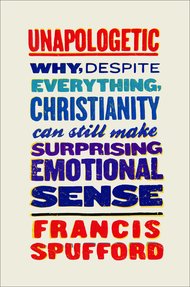In P.D. James’ novel, The Children of Men, couples are no longer able to conceive children. The novel introduces us to a society that lost the ability to produce offspring after the current generation of young adults. A wistful, lonely, alienated people remain in this childless world.
Though it is doubtful we will ever reach the circumstances portrayed in this book, some developed nations (Japan and Italy, for example) are seriously concerned about enough children not only to support the elderly but also to supply enough citizens to assure a vibrant society.
Parenthood is the unsupported career. Though an emotionally involved parent is in a sense always attached to a child, the most physically taxing part of the career is over with by the time the child is five or six. By the time the child reaches ten or so, the parents have shaped most of his or her character.
Back when families had five or ten or more children, parents spent the majority of their lives at the job of parenthood. Nowadays, birth control allows most adults to have children only if they’ve chosen to—at least, if they recognize the responsibility procreation requires.
We don’t support parenthood like we used to, for various reasons. Many choose not to be parents, a responsible decision. However, for those who do choose or who want to be parents, society is geared toward discouraging them at every turn.
Since most young adults require full-time jobs to meet financial needs, adding children to the picture is challenging to say the least. And in an age when money assumes the most important means to the good life, raising a child bites a chunk out of that.
Cheers to the last person in America in hopes they will have fun with their selfies.


 “Back then marriage was two families coming together in a kind of joyous celebration, at least in our case. Nowadays a couple of kids meet at a party and set up housekeeping together. Maybe we didn’t prepare our daughter for that kind of world.”
“Back then marriage was two families coming together in a kind of joyous celebration, at least in our case. Nowadays a couple of kids meet at a party and set up housekeeping together. Maybe we didn’t prepare our daughter for that kind of world.” This book is not the sort of writing expected of Christians. It isn’t just that the book contains a lot of four letter words not usually found in books written by Christians. It’s also, as Spufford says, not an “apologia,” a defense of Christian ideas. It’s a defense of Christian emotions “of their intelligibility, of their grown-up dignity.”
This book is not the sort of writing expected of Christians. It isn’t just that the book contains a lot of four letter words not usually found in books written by Christians. It’s also, as Spufford says, not an “apologia,” a defense of Christian ideas. It’s a defense of Christian emotions “of their intelligibility, of their grown-up dignity.”